#saint meta
Explore tagged Tumblr posts
Text
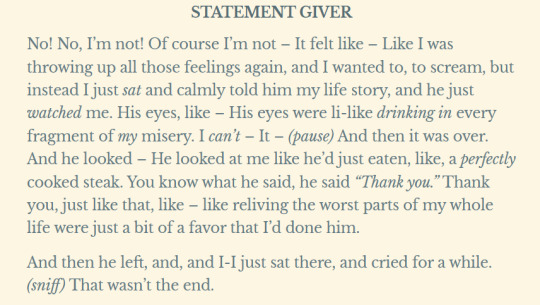
[ID: Transcript excerpt from MAG 142: STATEMENT GIVER: "No! No, I’m not! Of course I’m not – It felt like – Like I was throwing up all those feelings again, and I wanted to, to scream, but instead I just sat and calmly told him my life story, and he just watched me. His eyes, like – His eyes were li-like drinking in every fragment of my misery. I can’t – It – (pause) And then it was over. And he looked – He looked at me like he’d just eaten, like, a perfectly cooked steak. You know what he said, he said “Thank you.” Thank you, just like that, like – like reliving the worst parts of my whole life were just a bit of a favor that I’d done him. And then he left, and, and I-I just sat there, and cried for a while. (sniff) That wasn’t the end." End ID.]
the argument can and has been made that maybe jon tells jess tyrell he works at the institute as a mechanism to maybe accidentally-on-purpose get caught or externally stopped. and that is tasty and i dig it. but also i cannot help but think that there is a distinct possibility that he says this, like this, as some sort of internal coping device: you don't have to face up to the full scope of the ramifications of your actions if you don't explicitly acknowledge that you think it's wrong what you're doing. (after all his grandmother likely a) never apologised and b) seemed to sleep just fine) like. this just feels like such an attempt at distancing and compartmentalising and turning it into a sterile little transaction.
augh babygirl you are so unwell
#tma#the magnus archives#tma s4#jon sims#jon jarchivist#mag 142#saint meta#sorta? ish?#described#no UR procrastinating on actual work!!!#jonblogging
506 notes
·
View notes
Text
forgive me if this is utterly incoherent but i'm suddenly thinking about tsv sainthood again and how saints are the living product of violent traumatic assault on the body and subsequent death and rebirth as "something else", elevated to divinity by their sacrifice in theory but seen and treated as subhuman - created for the sole purpose of serving their former fellow man, upholding the infrastructure at the very bottom of the social hierarchy - in practice, and how intrinsic their suffering and death is to that conception. the corpse is, after all, "the utmost of abjection". a corpse is necessarily an object, a thing, a concept, because to acknowledge it as a person is to acknowledge one's own fragile position in the symbolic order, and how easily that is broken down and rendered meaningless. even more so when the symbolic order is as sociopolitically relevant as it is in the silt verses. saints are necessarily subject to abjection in much the same way as the corpse, because to look upon them and allow yourself to understand that they were once a person is to acknowledge that you could just as easily be in their position, and enduring the terror and revulsion in the face of that absence of meaning - that utter void of alienation - for an extended period of time would drive almost anyone blindingly insane with fear and grief. dehumanisation necessitates a sacrifice, necessitates death, necessitates assault upon the body, and this assault upon the body encourages its dehumanisation in an ouroboros of violence.
#🐉#the silt verses#not my brightest meta moment and nothing i havent said before but it bears repeating#i feel like paiges introduction episode articulates a lot of this tbh#when she mentions the train saint and when she says#'you have to believe that there's a plan here or you could lose your mind'#and of course her continuous denial and subsequent disillusionment in the face of vaughans unwilling martyrdom#as well as when shrue defined a saint as 'the literalised expression of a concept' and was met with contempt#for articulating what is considered general knowledge and common sense
420 notes
·
View notes
Text
Let’s talk about queerness and High School Frenemy. There’s a large portion of BL fandom that refuses to engage with the show, and while that rubs me the wrong way, I do understand it. If you only wish to consume queer media, it’s easy to dismiss HSF since it is not explicitly queer. It’s also a show that on a surface level, looks like classic queerbaiting. And before I get a bunch of HSF fans in the tags or comments, I am a huge fan of this show. It is possibly the best thing I’ve watched all year. But on a surface level, it is doing the literal definition of queerbaiting even if I personally do not think it is.
As a person who is OLD and came of age in the 90s, I do want to talk about this show from a queer perspective. I grew up in a time when queer characters were not abundant. If they did show up in media, it was newsworthy. These characters were always support characters and seldom had love interests or explored what it was like to be queer. None of them looked like me or made me feel seen or represented. Heteronormativity was the standard, as it is today, but back then, a queer kid seldom encountered anything that made them question that heteronormativity.
HSF, and Shin and Saint specifically, resonate with me more than most queer media I’ve consumed, and I’ve consumed a lot. The intense, obsessive love that Shin and Saint have for each other under the guise of friendship IS my story. For me, it was a wild girl named Jennifer, who I was attached to the hip with from 6th grade until our early twenties. I loved her. I was obsessed with her. I was probably in love with her, but it never occurred to me until years after we’d stopped speaking that what I felt for her was more than friendship. The heteronormative brainworms are real, and they infected me until my late 20s when I suddenly had a revelation about myself.
Hindsight is 20/20. Suddenly, my obsession with Charlize Theron in Two Days In The Valley, Helen Hunt in Twister (1996), and Kate Winslet in Titanic made so much sense. My relationship with Jennifer was also at the forefront of my mind. Ah, I thought. That’s what that was.
HSF is a show about friendship, a show about community, a show about the ways adults fail their children, a show about class and poverty. It is also a show about unrealized queerness. The director, Fon, told that story purposefully through music, lighting, and dialogue, she told a story about two boys who can’t live without each other, but don’t have the knowledge, the vocabulary, or the self-awareness to understand what they are to each other.
In every choice Fon made, she dangled queerness without explicitly naming it. I would call it queerbaiting in any other media, but for me, she made one other choice that I believe is purposeful and elevates this show into the queer category for me. She completely stripped the show of heteronormativity. There are no couples. None. We never see Chatjen’s parents. Any parents we do see are single - Ken’s father, Shin’s mother, Saint’s father, Cable’s mother.
In any other media, the male and female homeroom teachers with clashing teaching styles would be an enemies-to-lovers side plot. Here, they grow into supportive co-workers and friends who become better versions of themselves to help the children in their class. In any other media, there would be talk of crushes among the teenagers. Here, we see them grapple with the pressures of academia, abusive or absentee parents, bullying, drugs, and the hopelessness of poverty. In fact, the only mention of sexuality or romance at all comes from Eve, a girl who befriends Airy, a girl from their rival school, and confesses that she had a crush on her when she was younger. Nothing comes of this revelation, even though we see Airy become curious and seek out Eve’s company prior to this revelation, and we see how pleased Airy is about Eve’s confession. But this is a show about unrealized queerness and even Eve and Airy, two girls who understand what they are feeling for one another, still can’t bring themselves to name it.
The lack of heterosexuality creates a void that is filled by Shin and Saint’s relationship. It’s purposeful, and Director Fon uses other friendships in the show to highlight the ways Shin and Saint are not the same. Knot, Nate, and Ken are extremely close friends. They, too, have a “no one left behind” friendship pact. They fight for each other and get hurt for each other and very obviously love each other. Chatjen and Shin’s friendship is also very deep. Chatjen considers Shin his best friend. He hero worships him a bit and sees him as his protector and savior. Yet, anyone watching can understand the ways the producers use music, lighting, costuming, and dialogue to elevate Shin and Saint’s relationship above all the other ones.
High School Frenemy is queer. Shin and Saint are purposefully queer coded in a world devoid of heterosexuality. You are seeing what you are supposed to see, and it's a hill I’ll die on. If you were on the fence about this show, I can not recommend it enough. It’s great and will leave you feeling warm and happy and loved. If you only consume explicitly queer media, I still encourage you to watch it. Sometimes, our queerness eludes us. Sometimes it’s hidden under other words like “friendship” because we haven’t learned the right words for it yet. I enjoyed watching a show that reminded me of my youth and gave me a glimpse of the girl I used to be. She was still queer even if she didn't know it yet.
#high school frenemy#high school frenemy the series#shin x saint#saint x shin#saintshin#shinsaint#meta
350 notes
·
View notes
Text
The many Christianity references and symbolisms from Shadow Milk and Pure Vanilla Cookie.
Pure Vanilla Cookie walking on water milk. (Look at the tower on the left. That's so deep...)

In Shadow Milk Cookie's pre-corruption form, his hair silhouette looks like a nun's veil. His pose is also similar to how Pure Vanilla Cookie stands. Eyes closed, with his staff eye open.
But the present Shadow Milk has lost this silhouette, now donning a harlequin costume.


Once the Fount of Knowledge(outfit: nun-like), then becoming a Master of Deceit(outfit: harlequin- represents devil/demon) that makes him a fallen angel.
Pure Vanilla Cookie's role is Jesus Crhist, while Shadow Milk Cookie's role is Lucifer.
The chapter in episode "The Fall" where Pure Vanilla Cookie falls off the tower into the depths, which closely represents a falling of an angel into a demon. (This is what SMilk means when PV will "become him.") And from what Fortune Teller Cookie said where "The future of the past and present coexist." Pure Vanilla becomes Truthless Recluse, then went back in time to help at first, then fight Gingerbrave and his friends.

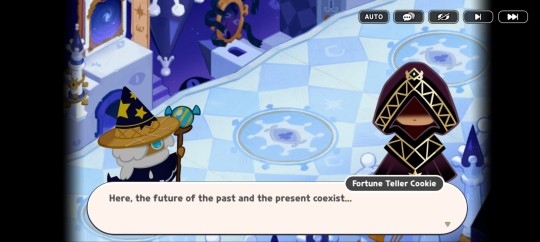
Awakened Pure Vanilla Cookie's outfit looks a whole lot more similar to priest, with the stole around his shoulders, as well as his Soul Jam holder now looks more like a cross.
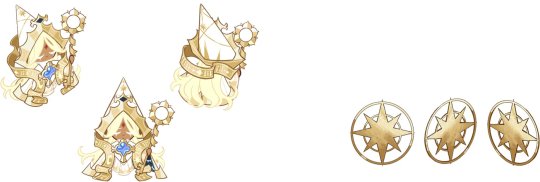
All resemblance of any eyes are now closed/missing (On the staff, his hat, and under his robes.) meaning the the Truth is what you believe in. (That's how Christianity, or religion in general, work.)
"A blade's edge is what separates Truth from Deciet." makes me remember of Judgement of Solomon from the bible.

(Shadow Milk and Pure Vanilla's lore are heavily inspired by Christianity... It's so good.) <- Catholic
#chess' boredom#shadow milk cookie#pure vanilla cookie#shadowvanilla#crk#cookie run kingdom#crk meta#Catholic is one of the branch of Christianity where we just worship god and saints but hard core (keeping the saints' skulls in display lol
152 notes
·
View notes
Text
the thing about barty crouch jr’s supposed sexual abuse is that “i was put under a magical spell of total bodily control & kept under an invisible cloak, unable to feel or even see my own body” is really a singular experience for which there is no nonmagical corollary or equivalent. and yet (i think) his story serves as an incredibly potent allegory for incest because it is so unintentionally similar in symptoms to the dissociative aftermath of prolonged sexual abuse.
but it is also significant that his experience is not literally one of rape. what i am trying to convey is like: being the victim of underage sexual abuse will have you acutely, pathologically believing things like “my body is not my own” or “i am not in control of my body”. but this belief is untrue, and therapeutic treatment will typically involve the gradual reacknowledgement that your body IS ultimately yours to reclaim. because at the end of the day, no matter how severe or prolonged, rape does not magically make your body actually belong to someone else. <- but in barty’s case this is factually untrue. in his story the symptoms of abuse have been literalized & thus become inescapable (much like in stories of vampirism), and that is what is so fascinating about it. what if there really was no way out? how do you behave?
#saints speaks 🐇#barty meta tag#much like armand he is such a victim power fantasy (in a way that acknowledges the extent of the hurt) and that is what is so compelling
136 notes
·
View notes
Text

Something's missing.
#rain world#rain world downpour#rw art month#rw saint#egg art#eggmoon creations#that one room in chimney canopy...hehe#i think it's fun how there's an audio stinger and everything#there's no reason for saint to understand the feeling of emptiness#but the player does#I think it's fun to imagine Saint having somewhat of a meta element#it doesn't feel like saint is meant to be here#saint feels like some kind of outsider#it's incapable of achieveing ascension it seems#i wonder if saint can ever be freed from its cycle#perhaps saint is merely the vessel we're dragging along with us in an attempt to fulfill our own desires#lunart
417 notes
·
View notes
Text
Don't know if this take is controversial or not, but I think Edmund is genuinely the best person of the siblings and I think that him making the biggest mistake so young is the main if not sole reason why.
Because his misdeed was so big (in consequences not intent) he went through all that turmoil and learned all those lessons, that the majority of people have spread out over their entire lives, all at once. He deals with all his flaws right away, while his siblings, who are viewed as good and well behaved people from a young age, have their flaws slowly start to show themselves and cause problems as they get older, leaving them unprepared for how to handle them.
#well fed devils behave better than famished saints etc.#also this is why edmund's arc in the voyage of the dawn treader movie was so poorly written#cause it's just the first movie arc but worse and he's literally over all that now#have said this before but it should've been replaced by him helping eustace in the way no one helped him#edmund pevensie#peter pevensie#susan pevensie#lucy pevensie#meta#edmund pevensie meta#narnia meta#narnia#the lion the witch and the wardrobe#the chronicles of narnia
168 notes
·
View notes
Text
Chapter 1125 Spoilers
These panels of Saturn having "his" power ripped out of him are so SO good!
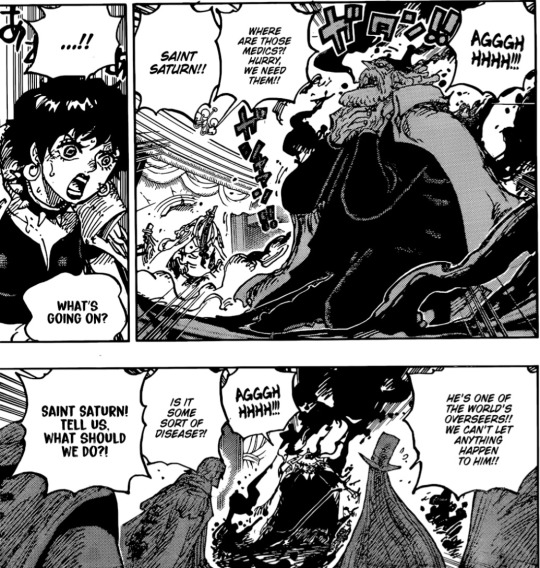
These panels of Saturn having "his" power ripped out of him are so SO good. It gives us more info on how Imu's power works, showing that it - along with granting a demonic form - also grants immortality. And, if the power is removed long after the persons life would have already ended, (which is show to be the case with Saturn, as he was alive during the previous Iron Giant attack, and probably long before) well,
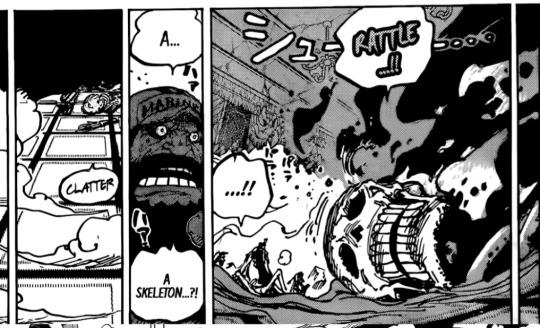
they die. Or rather return to the age that they would be without the aid of Imu's power, which would then result in death in the case of Saturn, and the other elders (other than Garling) I would guess.
This also implies that Imu can only provide power to five individuals at a time, and that the powers he can bestow are specific - as in he can has five forms he can give out. Of course we'll have to wait and see if Garling has the same demonic form as Saturn to fully confirm this, but its the interpretation I'm going with until we get more info.
It also plays into the interconnectedness of freedom and power, and how true power in the world of One Piece is freedom and the pursuit of freedom. And that by willingly giving up freedom for "power" in a more literal sense (whether is be strength, rank, or both) one is giving up their actual power in the form of their freedom. Saturn, in choosing to work for Imu, not only is taking freedom (and therefore power) away from the people of the One Piece world, but also gave up his own for the promise of strength and dominance, with in turn betrayed him and killed him. Contrast that with Luffy, who is literally powered by freedom, who is brought back from the dead by said power, as he is free and his strength is linked to his freedom. We see that same with Bonney, who through freedom was able to become powerful.
Power in One Piece IS freedom, and when someone betrays there own and others freedom in the pursuit of false power, they eventually fall.
#one piece#one piece spoilers#one piece meta#egghead arc#egghead spoilers#one piece 1125#one piece 1125 spoilers#saint saturn#imu one piece#monkey d luffy
172 notes
·
View notes
Text
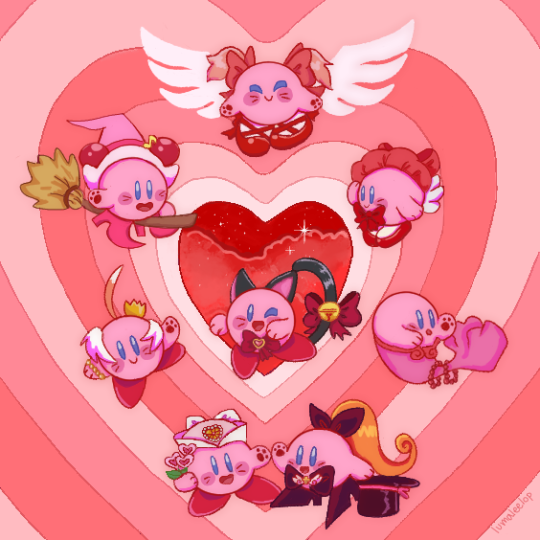
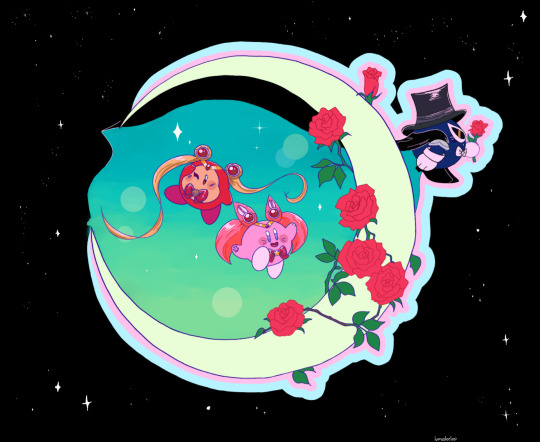
Kirby has all the qualifications to be a mahou shoujo protagonist!
#kirby#meta knight#sailor dee#sailor moon#pmmm#madoka magica#puella magi madoka magica#card captor sakura#tokyo mew mew#ojamajo doremi#princess tutu#mermaid melody#mermaid melody pichi pichi pitch#nurse angel ririka#nurse angel ririka sos#saint tail#mahou shoujos#magical girls#nintendo#nintendo fanart
777 notes
·
View notes
Photo
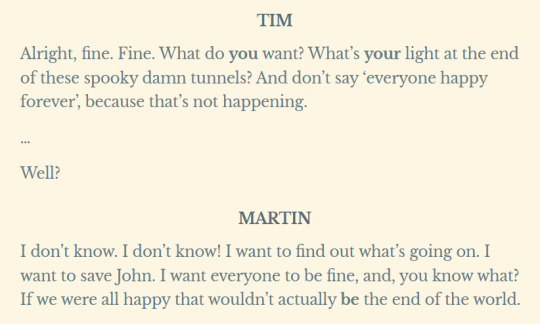
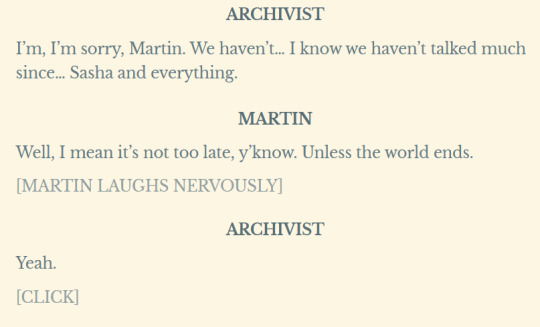

[ID: three excerpts from TMA transcripts. The first is from MAG079:
TIM: Alright, fine. Fine. What do you want? What’s your light at the end of these spooky damn tunnels? And don’t say ‘everyone happy forever’, because that’s not happening. ... Well? MARTIN: I don’t know. I don’t know! I want to find out what’s going on. I want to save Jon. I want everyone to be fine, and, you know what? If we were all happy that wouldn’t actually be the end of the world.
The second is from MAG102:
ARCHIVIST: I’m, I’m sorry, Martin. We haven’t... I know we haven’t talked much since... Sasha and everything. MARTIN: Well, I mean, it’s not too late, y’know. Unless the world ends. [Martin laughs nervously] ARCHIVIST: Yeah. [Click]
The third is from MAG175:
MARTIN: So you don’t think it would have been the end of the world? [There’s a bit of a laugh to the end of his sentence.]
End ID.]
thinking abt this.................. rotating it..........................
#also tim's genre awareness. we love him.#tma#martinblogging#my#described#saint meta#i mean.... sorta. not rly#there is something here. themes. narratives. u know
180 notes
·
View notes
Text
I might be overthinking this, but I sorta suspect that Germain's end goal with this arc is NOT to take Momo's powers. Or at least it's not the main goal he's setting out with.
Germain has been shown to be a tactical genius. Siccing Kouki on Momo does NOT make sense if the goal was truly to take her powers, since Momo is both far more experienced with her abilities and much more powerful than Kouki is, which lead to the very predictable outcome of her pancaking Kouki. Sure, Kouki had the numbers on her side, but against a smart opponent, numbers can be rendered meaningless.
And I think THAT, ultimately, is Germain's goal. He isn't looking to take her powers. He's testing her.
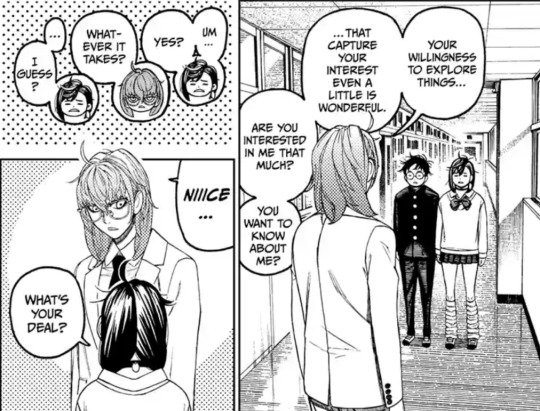
Germain took an interest in Momo when the two of them first met. Specifically in the fact that she did not just blindly accept his existence the way everyone else who encounters him does.
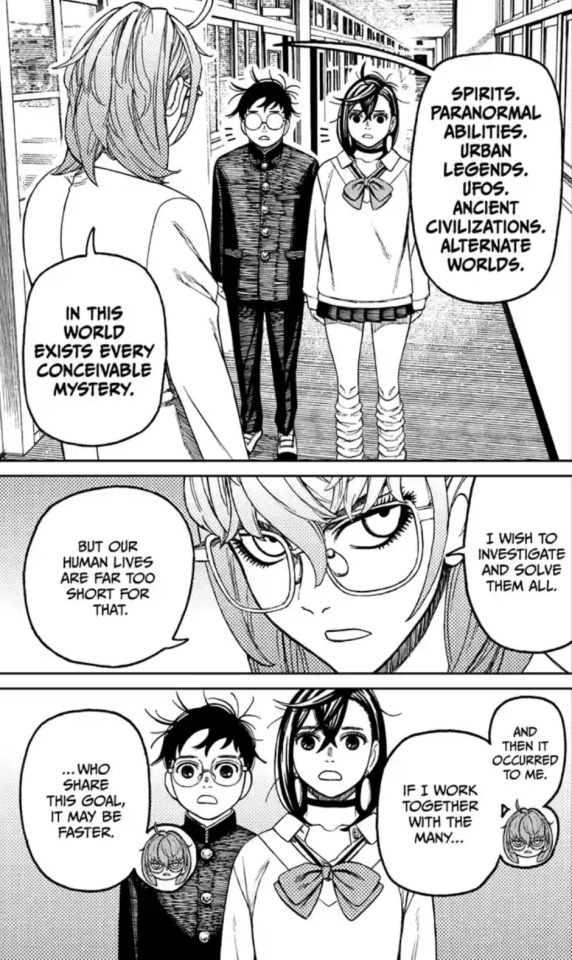
The original Count Saint Germain was/is supposedly a mentor in the matters of the supernatural and the occult, on top of being fanatical in his study of such things. And honestly, when he met Momo his introduction sounded less like he intended to do violence against her and more along the lines of a challenge to her. A test, to see if she was worth teaching what he has learned.
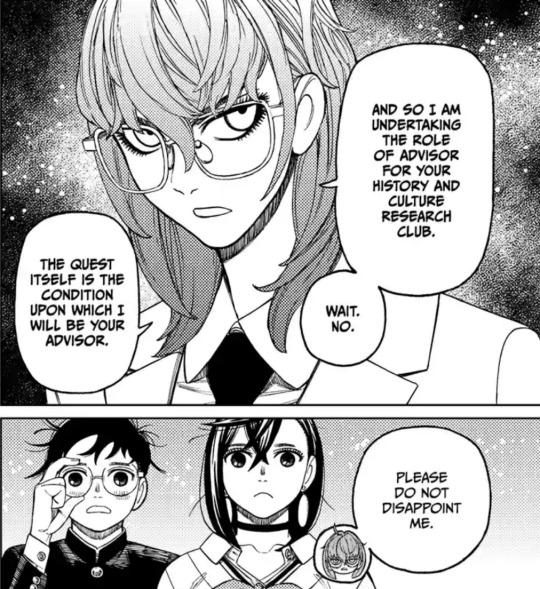
Kouki wasn't intended to take Momo's powers. SHE was the bait that Germaine cast out to try and see if Momo was smart enough to track him down. I think all of this is a test to see if Momo is worthy of learning from Germain, putting him in a role of a dark mentor figure the likes of Slade in Teen Titans or Chase Young from Xiaolin Showdown. This is why her curiosity and willingness to question and investigate something she found odd appeared to delight him so much, even when the odd thing being questioned was him. I suspect Germain wants to see if Momo could potentially serve as a temporary ally for him in his search for more knowledge on the occult.
And if it turns out that her powers are wasted on her, than he will take them for himself and cut his losses.
#dandadan#dandadan spoilers#manga spoilers#count saint germain#momo ayase#ken takakura#okarun#theories#meta#fan theory
110 notes
·
View notes
Text
I've remarked on this blog a few times before that I'm fond of the theory that The Shapeless One is Paracelsus, but I've always hesitated to elaborate, as I felt like there wasn't enough hard evidence that supported this theory being true. However, something recently clicked for me regarding one big parallel between them, and now I can't stop thinking about what that connection would mean for the story thematically.
In mémoire 61, after Machina pushes him to explain what his "plot" is, Teacher declares that he wants to achieve world peace. I've had no idea what to make of this line for a while now, just assuming that we'd need more context to understand what the actual hell he's talking about. But with the Paracelsus comparison, I feel like I'm starting to grasp what's going on there.
[This post needs a VnC-standard warning for mentions of suicide, sexual assault, and child abuse].
There are a few pieces of evidence that support the idea of Teacher being Paracelsus. VnC's Paracelsus is introduced as a great alchemist, just as he was in the real world, and the Count of Saint Germain was an alchemist as well. Nobody knows Teacher's origins, but he's one of the oldest vampires and close with the queen. There's also a little drawing of six-pointed stars that appears behind Paracelsus in the first storybook illustration of him, and those same stars are seen hanging from Teacher's walking stick in the scene where he first meets Noé.
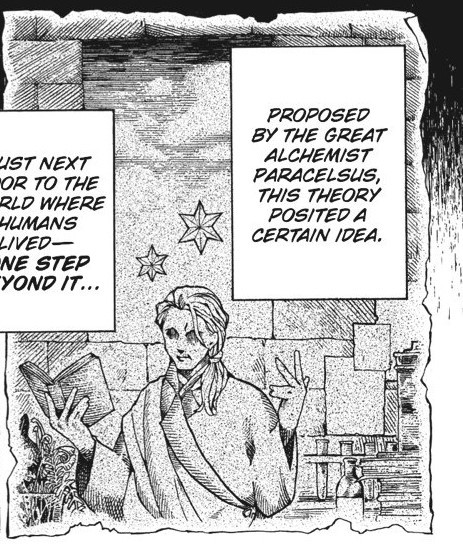
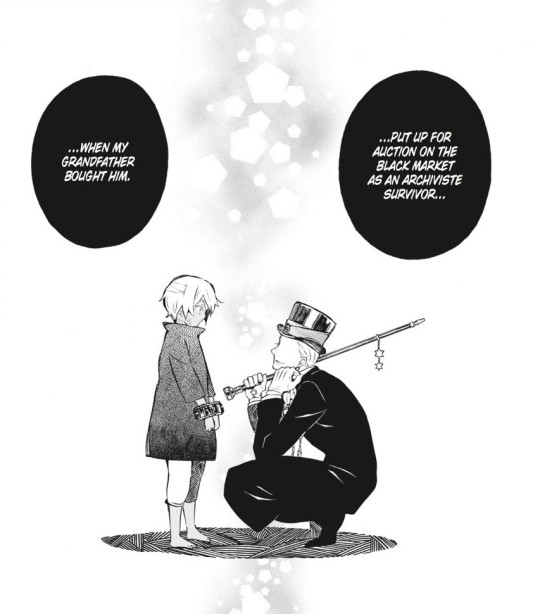
That panel of Teacher and Noé appears at the very end of chapter 6, and the Paracelsus panel appears at the start of chapter 7, meaning these images are quite conspicuously close together.
So what does this mean for Teacher's idea of "world peace"?
In the storybook version of Paracelsus's life, he's described as wanting to alter the world formula not for scientific curiosity, but because he wants to save the world.
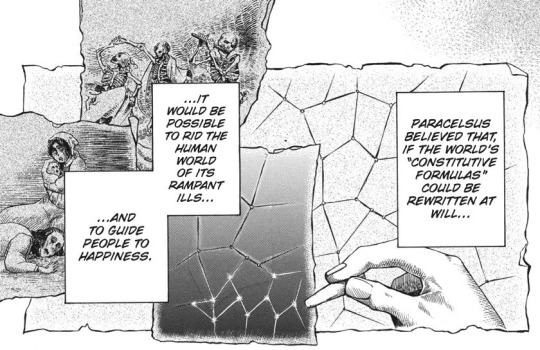
Paracelsus, per the childish version that Teacher presents to Noé, caused the Babel Incident because he was trying to "rid the world of its ills" and "guide people to happiness." The line about the human world's "rampant ills" is read over a drawing of dancing skeletons—a Danse Macabre. This is a Medieval way of drawing the personification of death, usually for the purpose of expressing the way that death comes comes for every person inevitably (the same theme later expressed by Vanitas art).
When Paracelsus speaks of the world's ills, this is the reality he seeks to cure. The world is afflicted with suffering and death, and he wants to rewrite the world's formula so that humanity can live happily without that pain.
A world rewritten to be without suffering—isn't that world peace? "World peace" is often used to evoke an end to armed conflict specifically, rather than suffering at large, but the concepts must overlap if they're pursued seriously. How can world peace last if there are people starving in famines or dying of disease? Suffering breeds violence. And how can someone seeking to alleviate "the world's ills" not want to achieve world peace?
If this is true, if Teacher's hope for "world peace" is him carrying on Paracelsus's legacy (or carrying on his own work, if they're the same man), then what does that mean for Paracelsus's supposed altruistic intentions?
We know little about Paracelsus now, only Teacher's recounting of the Babel Incident by way of a book he's reading to a child, but I think there are two ways to interpret what we do know.
Trying to rid the world of suffering is, on its face, the most noble possible intention. To lead the world to happiness is to attempt to help every other person in the world. And I can think of a lot of ways that Paracelsus's goals make absolute sense to me. If you discover that the fabric of reality can be rewritten, and you know that there are people in the world dying of famines, wouldn't you want to reshape the world so that they no longer have to go hungry?
It's possible, depending on what we find out about him in the future, that Paracelsus really will be a noble figure whose one great sin was hubris, and all he wanted from his research was to help the world in ways that make both moral and logical sense.
However, given some of VnC's other themes, I think there's another lens through which we should consider Paracelsus's actions. We don't know exactly what he was trying to rewrite with that disastrous experiment, but that Danse Macabre does give us one possible clue.
One of the themes that VnC has been slowly developing throughout its run is the idea that, though trying to save a person's life is noble, it is not noble to deny all death as a whole. This is a story about the concept of Vanitas, the idea that death is inevitable and that all else is rendered meaningless in its face. Noé feels like he failed Louis because he was unable to kill him when he asked, and it seems like the manga's being set up to end with Noé killing Vanitas to escape a fate Vanitas considers worse than death. One big part of what makes Mikhail so unsettling is his denial, his laughing about his mother's draining and the fact that he cannot accept the reality Luna has died, and Vanitas is horrified to hear that Misha is planning to resurrect their parent. That same issue goes on to be the one thing that finally drives a wedge between Noé and his teacher, as Noé can apparently forgive the man for purchasing him on the black market and killing Louis, but he's horrified to hear that Teacher told Mikhail that resurrecting Luna was possible.
All of these scenes have other elements to them, other things that drive the characters and inform why these specific ideas of undeath are so deeply horrifying to them, but the buildup of this running theme is an undercurrent through all of it. Vanitas means that someday all people must die, so what does it mean when somebody tries to deny that?
Even further, there's the broader horror of both Noé and Mikhail failing to process the bad things that happen to them. Misha commits blithe horrors in part because he does not understand that his sexual abuse was wrong, so he seems to see no problem with sexually assaulting others now in turn—as he does when he pressures Noé to drink his blood. Noé happily recounts being kidnapped and sold on the black market, remarks on Chloé and Jean-Jacques's goodness minutes after Chloé assaults him in his sleep, and brushes off the incident of Jean-Jacques drugging him to the extent that even Jean-Jacques himself is unnerved by it. All of that is deeply concerning behavior.
Misha is written to be obviously uncanny in his denial, and that uncanniness holds up a mirror to the subtler horror of Noé's own disconnects from reality. The more recent chapters have also begun drawing direct attention to the ways that Noé's denial of the bad in the world becomes problematic. The aforementioned scene of Vani, Dante, and JJ being disturbed by Noé's "it doesn't bother me" line does this, as does the long discussion Noé and Vanitas have about why Noé's ignorance of anti-Dham racism upsets Dante so much.
There is an ongoing tension in VnC between the inherent goodness of peace and life and the horror of what comes when those concepts are taken too far. Noé and Vanitas are this in a nutshell: an endlessly clashing duo made up of a too-extreme pessimist and a too-extreme optimist. The story arcs thus far have taken turns challenging each of their worldviews, slowly pushing Vanitas to open up and let himself hope for peaceful solutions, let himself accept love and emotional closeness, while also slowly pushing Noé to confront the fact that sometimes not everything has a happy-making peaceful solution after all. Sometimes "saving" a child means she has to die, and sometimes an enemy will have an entirely sympathetic reason to hate vampires, but Noé still has to fight them anyway to save the people he wants to save, regardless of whether that enemy is "right" or not.
Noé lives in denial of his own past traumas and his own present-day potential for harm. He denies the potential that "good" people he meets might harm him, and he struggles to accept instances where he has harmed others in turn. Dominique and Vanitas go on for pages after the amusement park about how reckless and overly trusting he can be, and he turns around, unable to cope, when confronted with the truth of what he did to Misha with his claws. However, Noé also has the benefit of his proximity to Vanitas knocking just a bit of sense into him, and it might not be a sure thing that he's going to stay in denial-land forever.
One of VnC's specific points of tension is the question of if/how Noé will grow to accept the hard things that currently bounce off his oblivious denial like water off of a raincoat. The end of mémoire 1, the statement that someday he's going to kill Vanitas, suggests that perhaps he might learn to understand how death, despite its pain, is important in its own right. It suggests that maybe he'll come around to no longer denying death and insisting that salvation is always its avoidance.
However, if he can't quite make that leap, the story provides us with dark mirrors to show us what a monster Noé could become by doubling down on his idealistic, optimistic denial. Misha's current state is Noé to an extreme, an innocent child committing horrors as he utterly fails to process the truth of his own horrific early childhood. Misha's driving motivation is a hatred of pain and suffering, and he's willing to do anything to resurrect the family that saved him from that pain in the past.
Then there's also Lord Ruthven, a man who was once an optimist in Noé's own mold, but has since broken bad in a spectacular way. Noé and Ruthven recite the exact same line about liking both humans and vampires, an obvious parallel, but now Ruthven is working with Naenia. Now he's living in the aftermath of his idealistic peace plan imploding and almost costing him his life. Ruthven despairs the last time he visits Gévaudan, lamenting the wrongness of his naive past hopes for understanding, and now he's working toward some unknown end involving Naenia, Charlatan, and the Queen. Now he's committing horrors of his own, biting at least three people by force, overriding their wills, and associating with the being that steals innocent people's true names.
There's also the question of what the hell Ruthven is doing with the queen. It seems he was somehow involved with Faustina devolving to her current state, and Loki references "smashing up her corpse," so it's possible Naenia's existence may be a sign that Ruthven wants or wanted her dead and/or cursed. However, the shots of him with the Faustina-like body in the tank at the end of mémoire 18 suggest there's a chance that he could instead be involved with some form of resurrection scheme (or a scheme to preserve/save her if she's not yet fully dead).
Ruthven exists in part to demonstrate the ways that an idealist like Noé can go bad, and it's possible that he, like Misha, is attempting some sort of awful resurrection, once again denying the reality of death.
Then, finally, there's one more character with whom Noé has these sorts of obvious parallels. The man who, perhaps, is also meant to represent what Noé could become if the dangerous sides of his optimism aren't reigned in: his teacher.
Noé is fascinated by Vanitas, drawn to him out of care and connection, but also because he wants to observe and understand him to sate his curiosity. In a darker mirror of the same trend, we see Noé's teacher allow Louis, Noé, Domi, and Misha to come to harm at least in part for the simple enjoyment of seeing how they react when placed in dark new situations. Noé and his teacher are also the only crimson vampires we know of who find the Blue Moon beautiful and alluring, rather than a source of fear (assuming that Teacher is a normal crimson vampire).
Noé was raised by this man; his worldview has been shaped by him in countless ways big and small. Noé was already living in cheerful rejection of trauma before The Shapeless One found him, but he could not have remained so radically detached from the painful parts of the world around him if his teacher had not wanted and allowed him to do so. He censored Lord Ruthven out of Noé's education, and he apparently did the same with anything that discussed (or expressed) severe bigotry toward Dhampirs. How else did Teacher shape him, and to what goal?
We know that the Shapeless One taught Noé how to fight. Given that "world peace" line, I wonder if perhaps he may also have taught him his morals on wanting to avoid conflict.
Teacher is a contradiction. He talks about "world peace," but he blithely leads Louis to his doom and supposedly doesn't hesitate to half-kill anyone who calls him by the wrong name. Marquis Machina calls him an incomprehensible natural disaster for this reason. Yet, despite all his rampant cruelty, I'm beginning to think that he might be just as much of a dangerous optimist as his student.
Teacher is defined by the fact that, in every scene, he always seems to look like he's having fun. There's hardly been a single panel where he's not drawn smiling. Sometimes that fun is vicious, a cruel smile made as a threat to Vanitas when he fails to address him by his name, but just as often, his aura seems horrifically innocent. He's just a man with a sweet smile and rather dull eyes having a very good time with life.
In the past I've largely looked at this smile as an extension of Teacher's sadism. He toys with Louis and Noé for the fun of it, and I took his smile as an expression of his cruel enjoyment of the pain he creates in his wake. However, now that we've seen him interact with Machina, now that we've observed him speaking casually with a peer for an extended period, there seems to be a disturbingly sincere quality to him as well.

Based on how he's portrayed in mémoire 61, when Teacher says he does everything he does for the sake of "world peace," I honestly think I believe him. I don't believe that he's not a villain—I can't guarantee that his vision of "world peace" would even align with a normal person's definition of "peace" or "happiness," but I believe that he's speaking some version of honestly here.
There's an honest to goodness optimism in that ever-present smile. There's a hope and a genuine quality to what he announces to Machina, in contrast to his smiles of sweetly cruel schadenfreude.
So perhaps, if all that is true, if Teacher is another dark mirror to Noé and he really does want to bring about world peace, then the point of him is that "world peace" has the potential to be a horror. What is the pursuit of world peace if not the ultimate pipe dream of every idealist in the mold of Noé and Ruthven? And what is VnC if not a long catalog of the horrors that idealists can bring about if they aren't careful?
And that, finally, brings me back to Paracelsus and the Danse Macabre.
Depending on what Paracelsus wanted to achieve through his experiments, it's possible he may have been yet another character trying to escape the harsh reality of death. The line about the world's "rampant ills" is placed over the Danse Macabre, after all—a symbol of death's universal inevitability. Is that the painful ill that Paracelsus wanted to address by rewriting the world formula? Inescapable death itself?
If so, Paracelsus becomes the ultimate embodiment of what happens when one denies death's certainty and the necessity of that certainty. He's the ultimate denial of "Vanitas" and what it represents on a scale far larger than Noé, Misha, or even Ruthven could grasp. And the manga casts his failed experiment as a Tower of Babel, throwing the world into chaos and causing countless deaths in his failure's wake.
Meanwhile, Teacher seems to have some ideas about how to cheat death in the present day, as he's promised Misha that there's a way to bring "The Vampire of the Blue Moon" back to life. This could be a lie, of course, or he could be planning to bring back "the vampire of the blue moon" in a way that does not actually bring back Luna as an individual. However, even trying to bring back the Blue Moon in some other way, perhaps through the human Vanitas, still represents him trying to restore something he found beautiful that was lost because of death. It still ties him thematically to the perversion of death as an ending, the same as Mikhail and Ruthven.
So far every character we've seen that wants to undo death is cast as an antagonist. Ruthven, Mikhail, and The Shapeless One are all united by a cruelty and a perverseness in various forms, and their goal is part of this. Death is a tragedy, but although trying to save the lives of people who want to live is noble, attempting to undo or eternally escape death is a far worse horror.
If Teacher is Paracelsus, or if they're closely connected in some other way, then that serves to further this point and show how the horror of escaping death extends to Paracelsus as it does the others. Teacher is strange and cruel. Paracelsus might be a nobly hubristic historical fool in a storybook, but if these two characters are connected, that instantly reveals the unsettling truth of how wrong Paracelsus's potential attempt to thwart death would have been. Nothing Teacher is working for can be wholly good.
And, just as Noé and Misha's denial is both present and harmful beyond the most severe subject of death, even if Paracelsus wasn't trying to craft a world without death by altering the world formula, we know he was trying to create a world without suffering. Again, this is a noble goal in theory, but so long as death remains, some suffering will remain as well. Crafting a world without pain and suffering can also go much too far, can slip into denial and cruelty. Mikhail's whole motivation as an antagonist is his search for a life without pain, and look where that's led him.
A rejection of all suffering can be an extremely dangerous thing, whether it's running from one's own mental pain or wanting to rewrite the world to negate all suffering as a whole. This dream will never not be a detachment from reality.
The Case Study of Vanitas is a series that seems to be searching for a balance of optimism and pessimism, a way to approach the harsh realities of life that lies between the toxic extremes embodied by Vanitas and Noé. To lapse too far into hopeless pessimism creates a Vanitas, a Chloé, an Astolfo. It creates people who are suicidal, genocidal, or both, and dangerous to themselves and others for it. However, to go through life in a state of eternal joy without processing one's pain, or to attempt to create a world wholly free of suffering—that is just as dangerous and foolish. What are Noé, Misha, and Ruthven if not dangers to themselves and others? What is Teacher if not the most dangerous man in this manga?
Noé and Misha are unsettling because they smile through the bad things that happen to them and act as though they aren't bad. They each have some exceptions to this rule—Louis's death for Noé and the pain suffered at the hands of Moreau for Misha—but they still come across as at times disconnected from the reality of pain.
Yet, neither of them is as disconnected from the reality of pain as a man that can behead the grandson he raised with a smile on his face. Noé as a child sees the fun in being kidnapped and put up for auction. Teacher, if his smile is to be believed, sees the fun in every single thing we've seen him do, and that's what's so unsettling about him. He genuinely seems to be having a good time, including and especially when he's blithely committing horrors for the fun of it.
Noé and Misha's strange behavior stems from trauma, and we don't know that's the case for Teacher. Perhaps not, as he seems much colder and crueler in his tendencies than either of them. But either way, the happy sincerity displayed by both of them is echoed in the face of the Count of Saint Germain as he tells Machina that he's searching for world peace. That is the face of someone idealistic, someone who believes he's working toward a real goal that both justifies and delights him.
Teacher wants world peace, and his warped nature means that we have no real idea what "world peace" means to him. Is a world at peace a world where he still gets to violently beat people who get his name wrong? A world where he still gets to have fun observing the free will and choices of the traumatized children he raises? Maybe he once believed in a world that was truly without suffering, and his overly-long life and mad optimism have eroded his tether to reality, turning him into the awful person we see now. Maybe the catastrophe of the Babel incident broke him and turned him from a hubristic idealist to warped echo of his former self. Maybe he somehow thinks all the suffering he causes is justified if it's in pursuit of his noble end goal. Maybe his version of "world peace" is a world where all people can live free from the fear of death, and the smaller pains caused along the way are irrelevant in the face of that impossible dream.
Or maybe he's just a cruel hypocrite.
In the end, we still know too little about both Paracelsus and Teacher to make any grand proclamations about the truth of their characters. However, I can't unsee this connection between them now that I've seen it. Teacher is one of Noé's dark mirrors, a character that represents the horrors possible when one goes too far down his current emotional path. Noé is optimistic to a fault, convincing himself to see only the best in many truly awful scenarios, and Teacher is the man with an eternal smile printed on his face. Noé loves and wants to save Vanitas, and Teacher speaks of the Blue Moon's ultimate beauty and says he has a way to bring them back to life now that they're dead. Noé is the eternal savior, always desperate to prevent people from dying, and Teacher claims that everything he does is done in the name of achieving world peace.
Similarly, Paracelsus is defined by throwing the world into chaos and horror due to his over-optimism. He tried to go too far, tried to rid humanity of its countless ills and create his own form of world peace, perhaps even tried to rewrite the reality of death. Did he hate pain and cold like Misha? Did he want to stop unjust wars like Ruthven? Did he want to become a savior in the image of Noah?
If Teacher's goal of "world peace" is to be believed, then whether or not Teacher and Paracelsus are actually the same person, they represent the same thematic extreme. Death is inevitable, says the concept of Vanitas. It's inevitable and Noé must learn to accept that fact before he does something awful in the name of pain and death's prevention. Teacher and Paracelsus have both done something(s) awful in the name of pain and death's prevention. Teacher and Paracelsus have followed Noé's path of optimism to such an extent that they, in one way or another, both claim(ed) to want to save the world, and this requires a mad extreme of Noé-like cognitive dissonance and hubris.
Paracelsus pursued some goal, some way of granting humanity happiness that was supposedly noble but still murky in its specifics, and he warped the fabric of reality and caused the countless disasters of the Babel Incident in the process. And that's assuming the storybook is true, and Babel really was accidental on his part. Meanwhile Teacher has warped the seemingly noble dream of world peace into something that he can claim is served by the way he's tormented Louis, Misha, and Noé. There's a chance that both men tried or are trying to undo the reality of death. They're bound by the same underlying current of scientific curiosity intermingled with their dreams of world peace.
Noé is not an alchemist, and he's not particularly skilled at rewriting the world formula. He's unlikely to have any chance to rewrite the fabric of reality itself for the better. He's unlikely to have any chance to achieve "world peace" by any definition.
Noé is, however, a dangerous optimist who has not yet learned that death is unavoidable. He hasn't yet learned that death can be preferred to its alternatives. And he was raised by a man who seems like he has not learned or does not care that disrupting Death in the grand sense will inevitably lead to horror. Or perhaps a man who enjoys horrors and wants to toy with absolute death as a part of that. And all this in a world warped and defined by the folly of a man who may also not have understood the horror of evading death.
So Teacher might be Paracelsus. I think this connection between them only strengthens the odds of that theory being true. But even if he isn't, they represent a similar thing for Noé and for the manga's themes at large. You cannot rid the world of the Danse Macabre, and attempting to end that dance will only bring greater ills and greater pain than death on its own could ever hope to bring.
A strange and dangerous man proclaiming with an honest smile that he wants to bring about world peace does not make him any less strange or dangerous. Depending on his definition of world peace and his idea of death's place in it, that idealistic goal may actually make him far more dangerous than if he were nothing more than a simple sadist.
#I've talked at length about some of these ideas in other posts before#but putting this together felt like finally being able to marry a few different major themes I've written about#that have stayed largely disparate up to this point#also huge shoutout to the several other theorists I've seen point out the thing with teacher and paracelsus and the stars#that's such a cool detail#ANYWAY this is more of a reach than what I'd usually stake a whole meta essay on. but I feel like my thematic foundations are sound#vnc#vanitas no carte#the case study of vanitas#teacher#vnc teacher#the shapeless one#comte de saint germain#vnc paracelsus#teacher my beloathed#noé archiviste#theory#english major hours#vnc spoilers
110 notes
·
View notes
Text
ideal careers for barty crouch jr besides being a domestic terrorist:
line cook
heretic
slutty eurotrash dj
eccentric, dexterous 1890s safecracker enlisted in a high-stakes heist to steal the queen’s diamonds
the guy that people mean when they say “i know a guy” in mafia movies
STUNT MAN
2000s pop-punk emo band frontman with pictures of his crotch on myspace
manipulative high society victorian-era celebrity hypnotist famous for “causing” somnambulism at his “shows”
electrician (thanks lune)
engineer, but specifically the one behind the infrastructure used in risky motorcycle stunts
slutty eurotrash club promoter
the sound-effects foley guy for b-roll action movies who is always walking around w/ headphones and holding one of those skinny boom mics
house husband
ideal careers for regulus black besides being a failed domestic terrorist:
the sullen, withholding renaissance-era muse of a tortured artist, posing in place of the angels, his enigmatic yet eerily beautiful portrait immortalized forever on the ceiling of a cathedral
critic of any kind (professional hater)
surgeon at a hospital for stuffed animals
a broken man, unfixable. a fool, hated by all, exploited till death. only in this way will he be redeemed
cunty benedictine monk
#ARGUE WITH THE WALL#barty meta tag#actually. teacher should be on here. i feel like that’s the one profession we know definitively that he’s good at#the fact that he’s a gifted teacher and actor……….. he was so so precious. the main character#saints speaks 🐇
373 notes
·
View notes
Text
Friendly reminder that since a bag of popcorn was the only food we saw Crowley actually get for himself on screen through both seasons of Good Omens, it’s perfectly safe to imagine this disaster of a demon living exclusively off junk food*, kids menu**, and alcohol***.

*Including the slice of angel cake he shared with Aziraphale during one of their dates debriefs right before Warlock’s eleventh birthday. A book scene we were robbed of in lieu of its mere shadow, by the way.

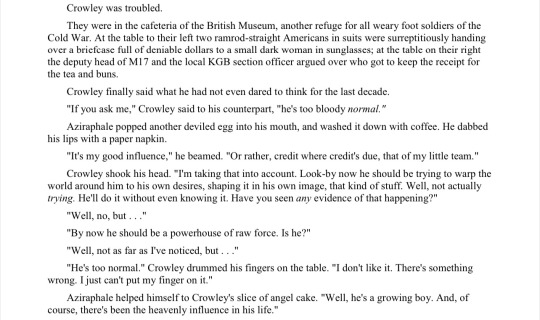
**Like the crêpes they had back in 1793 after sorting out all of that discorporation nonsense.

***Completely self-explanatory.

#good omens meta#good omens#crowley#patron saint of adhd#girl dinner#angel cake#we had crêpes#quite extraordinary amounts of alcohol#yuri is doing her thing#procrastinating again
101 notes
·
View notes
Text
An incomplete but very angry diatribe about the missed potential of the Star Sapphires
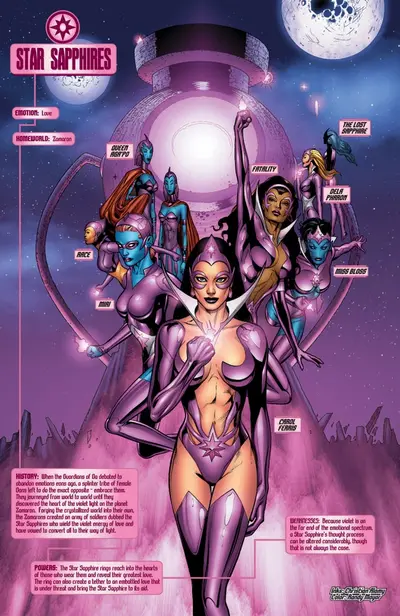
So back in the day Geoff Johns and co decided to open up the Green Lantern mythos and add some more flavor and expand the concept of sci-fi tech powered by elemental emotion to more than just willpower. Which yes, is not an emotion, we ignore it and move on.
Anyway we got some really cool stuff! A rage tyrant fueled by experiencing incredible injustice on a personal and cosmic scale, whose vendetta twisted him into something terrible. An avatar of greed who was never allowed to have anything, not freedom, not family, not safety, who takes and takes and takes to fill a void that can never be satisfied. A priest who lost everything but presses on through his unshakable hope that the future can and will be better. It's a lot of fun stuff!
So in this great creative re-imagining, they had to do something clever and fun with the idea of an all female corps powered by love right? They took the opportunity to move past the purely romantic, sexual idea of love and the obsessed femme fatale archetype, because they had the chance to really explore different types of affection now that there were a bunch of different avatars with different stories to pull from right?
Right?
Nope! The only Sapphires we ever learn about are heartbroken over a cursed romance like Carol, grieving a dead fiance like Miri Riam, forcibly mind controlled to be one like Fatality, or just Miss Bloss who...kind of said she wanted to join up? No clue what her deal is, as far as I'm aware that's never really explained. And then we just never learn about anyone else, and still haven't. The hell is "The Lost Sapphire"? No idea, we'll likely never know.
It's frustrating because not only is this a glaring example of the depth of plotlines offered to women in comics compared to their male counterparts, but also a wild lack of imagination. Love is one of the most complicated emotions we experience. Fear, anger, hope, all pretty easy to quickly define. Love is multifaceted, cultural, incredibly contextual and a factor in so many different kinds of relationship. Just thinking logically it should be much easier to flesh out the motivations of a group pulling from such a nuanced source of power, versus something as clear-cut as rage. But no, the red lanterns got so many varied reasons for their rage, the male ones especially: Bleez being the woman was of course given the SA narrative, which I don't think is inappropriate on its own, that's an incredibly valid reason to be angry, but as the ONLY truly prominent female Red Lantern it's like...c'mon guys. But still, at least she and Atrocitus had different reasons for becoming what they are, and that variation was played for plot and drama.
But there's not a single Star Sapphire that personally champions something other than romantic love. And before you shoot me, it is explicitly mentioned that they DO protect other forms of love, so there's no reason for them to all be sexy and obsessed with kissing people. There are no Sapphires that are driven by:
The love of their children and families, even in a tragic sense, like Atrocitus and Saint Walker and Larfleez are...
Their love of their people, or their culture. It would have been interesting if Fatality was inducted BECAUSE of her pain at losing her world, but no, they just...replaced her anger with lovey vibes and called it a day.
Their love for nature. Not everyone is social, but social love isn't the only way to strongly experience the emotion.
Their love for themselves. Where is the fun narcissistic ass who loves their own self image to the point of getting powers? It would have been a fun twist and a cool way to get another villainous Sapphire if you wanted to.
Their platonic love of ANYTHING really. Are ace/aro people just...not capable of love then? It doesn't mean anything to be willing to drive cross country to help a friend move just because they needed it and you care? No? You need to be fucking for it to count?
It's like...fascinating if you really think about it. In this vast fantasy universe full of alien races with wildly different perceptions and life cycles, and where the other corps have plenty of non-human, truly alien looking members, that the women's only love corps is full of only hot hot scantily clad baddies. Most love that people experience in their lives isn't even romantic! You will have far more experiences with friends and family members and even loving strangers than you will have with romantic partners.
Like the reason is clearly sexism, duh, but we know sexism is bad, that's obvious, what I really want to make clear is how much this blatant, unexplored sexism just completely desecrated the potential of the worldbuilding here.
From another angle even: Let's say this this WAS the sex and romance all the time corps. Let's say that you wanted to keep it all women. I hate the idea that women are capable of love in a way that men aren't, that's such a bad take and just regressive and unhelpful, but let's just play ball for a moment. They're not even hot? Their designs are such ridiculously narrow versions of feminine attractiveness that they're not even successful at really being mass appeal sexy. I haven't even reached the point of complaining about the fatphobia and criminal lack of different body types yet, I'm still just saying that from the standpoint of fantasy sexy it's not even good at being stereotypical offensive fantasy sexy. It's just boring! They're all so visually boring! You can be scantily clad and still have an interesting and coherent character design! But that is not what they gave these women! They actually redesigned the classic Star Sapphire costume and made it MORE sexist and boring:
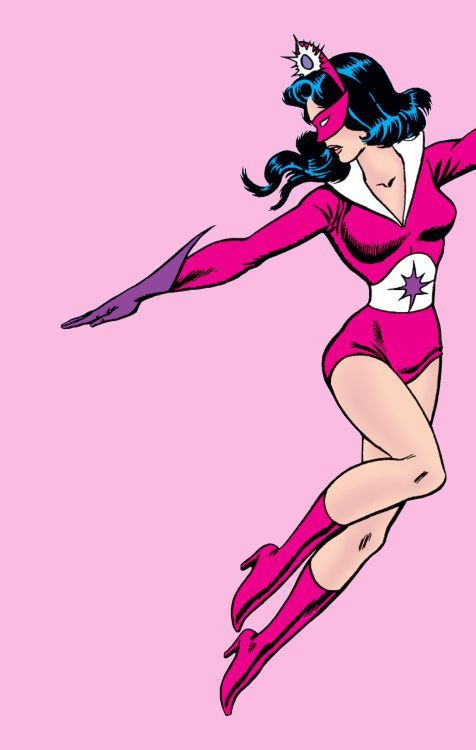
Yeah it was cheesy but it was also cute and fun? The design is playful classic sci-fi girl and this is when she was still a dangerous unhinged villain. Its fun to look at and feels tonally coherent next to Green Lantern.
And then they just...
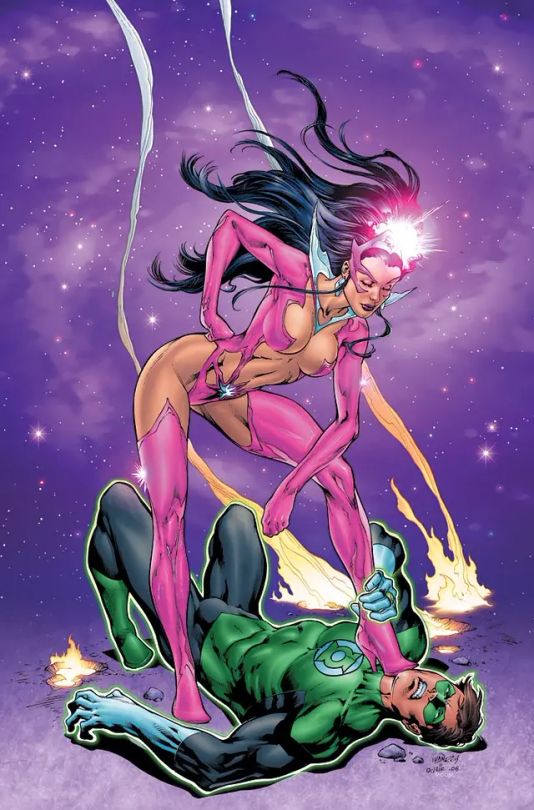
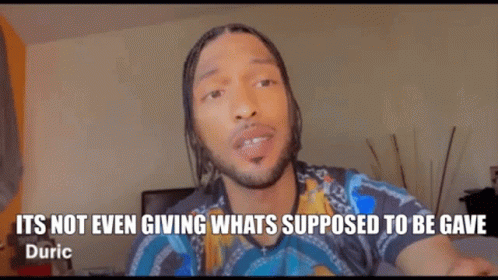
No actually, I will not explain this one, you have eyes.
And yeah they fixed her costume finally,
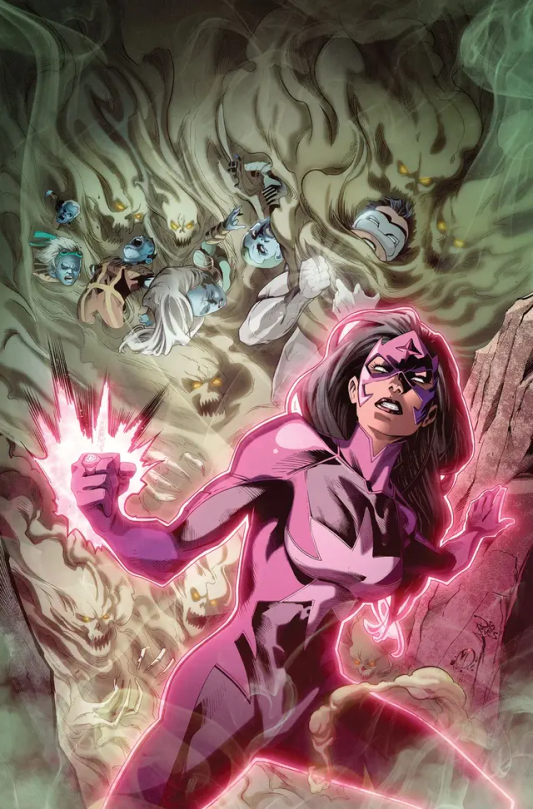
But! She's still stuck as Hal Jordan's romantic punching bag, and has not gotten to have any new adventures on her own.
So.
What I'm saying is it's a flop all around. 2/10, and only because despite everything Fatality STILL managed to serve. I actually think that all of the corps have been poorly used since blackest night, even the greens actually, but they never even gave the Sapphires a chance. They last showed up in...a WW annual I think? During the whole dark gods event, they needed Diana to help them fight the evil god of love, and there was a guy in the corp finally, and they talked about sisterhood and then we haven't heard a peep from them since. I think Carol might be due to get her ring back in the GL ongoing but she's not really been treated well so far, so I'm not hopeful for anything fresh and well reasoned.
So my lovely ladies (and that one unnamed guy), until they let you get it together it may be time to
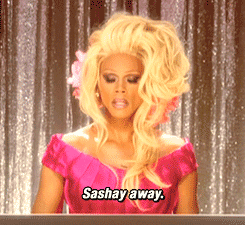
#dc comics#comics meta#hal jordan#green lantern#star sapphire#carol ferris#fatality#atrocitus#larfleeze#saint walker#sexism#shut up cerata#dc editorial answer for your crimes#get off of my lawn
330 notes
·
View notes
Text
I can't stop thinking about just how emblematic everything in those conversations of Ashton being "a child" are of how, even at her most beaten down, triggered and traumatized, Laudna is not and will not be what Delilah wants her to be.
For Delilah, "they're still a child" is dismissive, a bit derisive, but doesn't even merit being truly hateful. She doesn't find Ashton worth the attention Laudna is giving them, not when there are such more interesting, important things to pull the attention of an adult. Children are only important when they are useful. She will indulge Laudna on the subject, because Laudna is useful, is her vehicle for action in the world, but she only cares about it in the context of getting Laudna to do what she wants. Calling someone a child is calling them unimportant. (Laudna is a child to her)
But for Laudna, who loves children and who understands intimately what it's like to have the helplessness of child, to be trapped under the authority of someone who will never treat you as a full person, even when they are being ostensibly kind, to be so confused and lost and powerless...a child deserves attention more than anyone else. Of course children lash out. Being a child IS in many ways quite awful because the world is so big around you and you don't know yet how to react to any of it, how to soothe yourself - and if you aren't given the attention, you never learn how. Ashton never learned how. Her instincts - instincts trained into her by manipulation and abuse from inside and the world around her - may say kill him, but she fights them the whole way because her heart is stronger and her heart says that the angriest, most volatile child needs care as much as any other. More, even.
Laudna hears Delilah call Ashton a child and agrees on the word, but they have diametrically opposed understandings of what that means, and diametrically opposed instincts on how to treat a child. Laudna doesn't want to hurt anyone, especially children. She loves children. She loves so much and so selflessly. And Delilah is so very very good at manipulating her but she has tried for 30 years to change the bedrock of Laudna's psyche, the truer thing that drives her beyond the base animal instincts of survival, and it hasn't worked.
#critical role#cr meta#laudna#delilah briarwood#g o d I love her so much#she is so GOOD#and like I was so very worried for her at the break but#I keep forgetting and underestimating her#her strength may not look the same as other peoples'#it may be hidden under her traumatized confusion and twitchy fear but#it is there#she is so very strong#her victories aren't huge and showy but they don't need to be#can't be maybe in a war of attrition inside her own head#but after 30 years she is STILL THERE. STILL HERSELF. STILL KIND.#FUCK#I gotta go lie down on the floor about it#no wonder Imogen loves her so much honestly#she knows how hard it is to keep yourself good and kind in the face of a constant onslaught#I know its jokes but like. yeah. she would be a saint to Imogen.#st laudna real not clickbait
491 notes
·
View notes